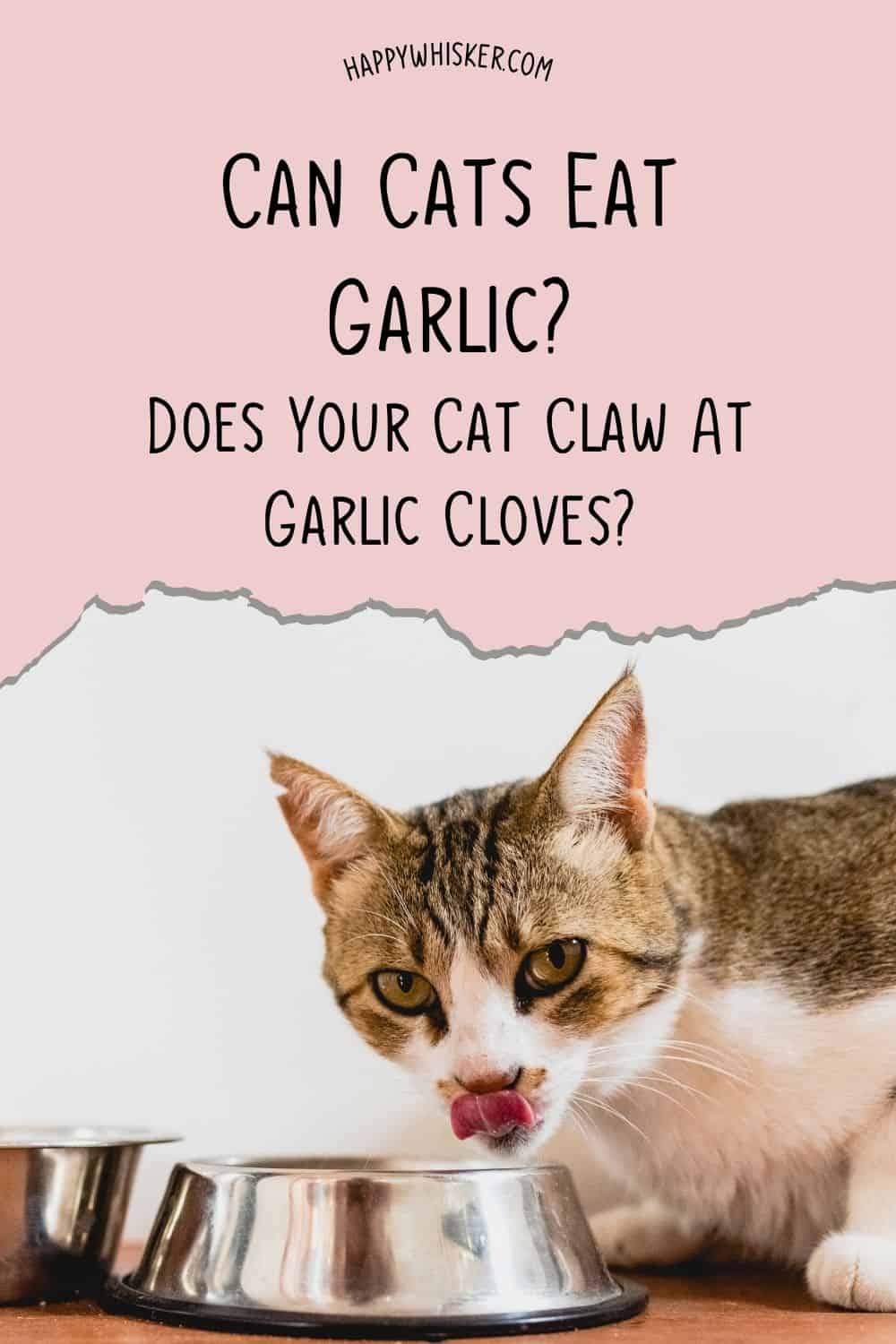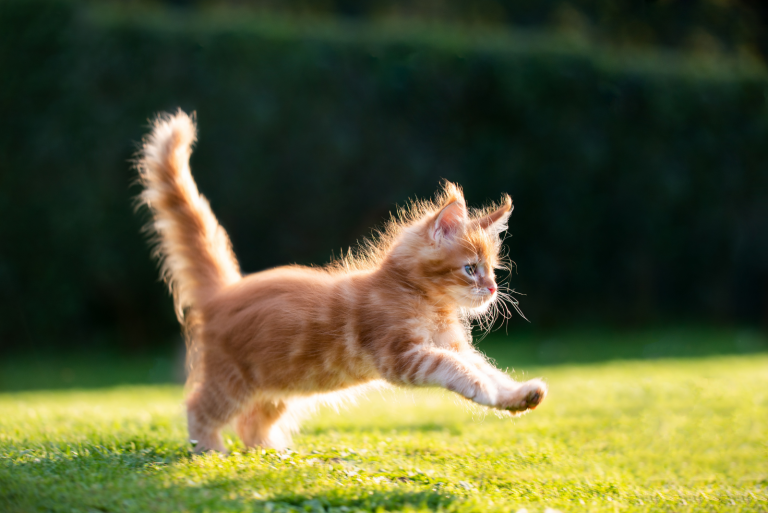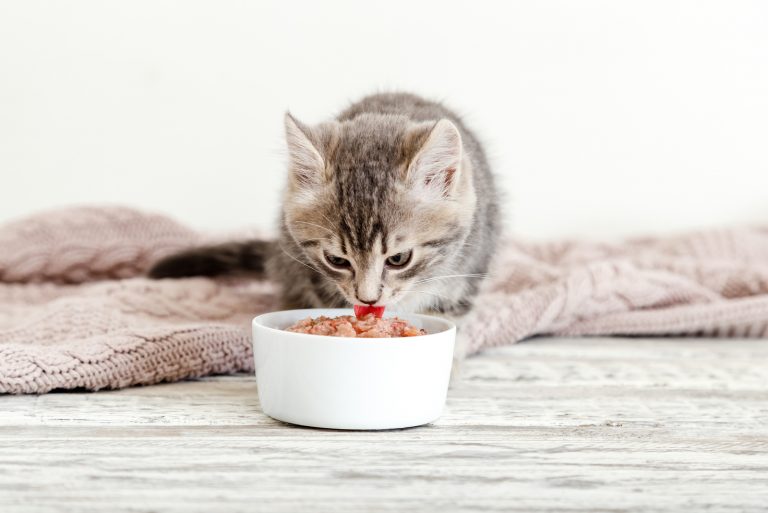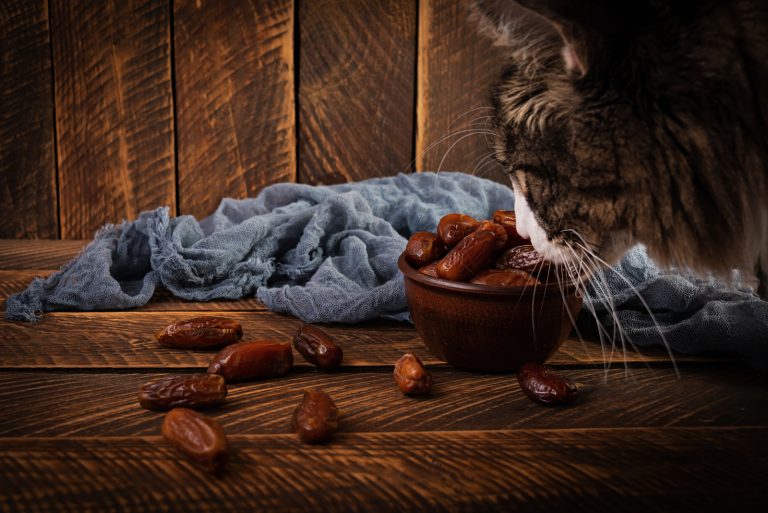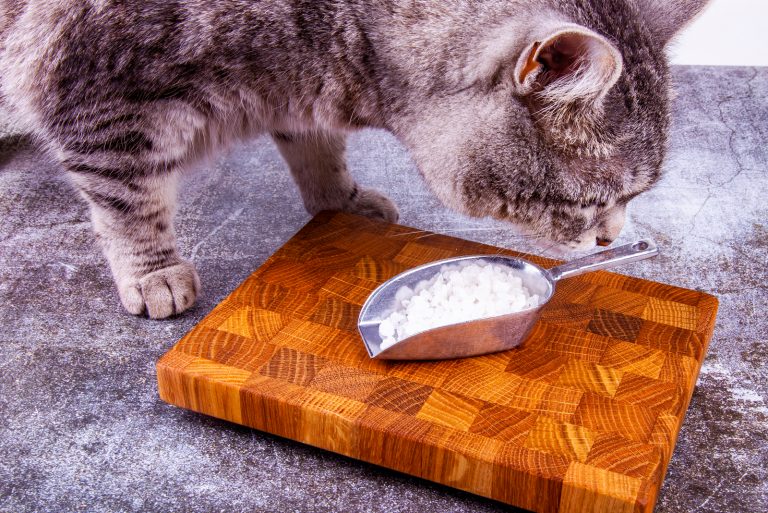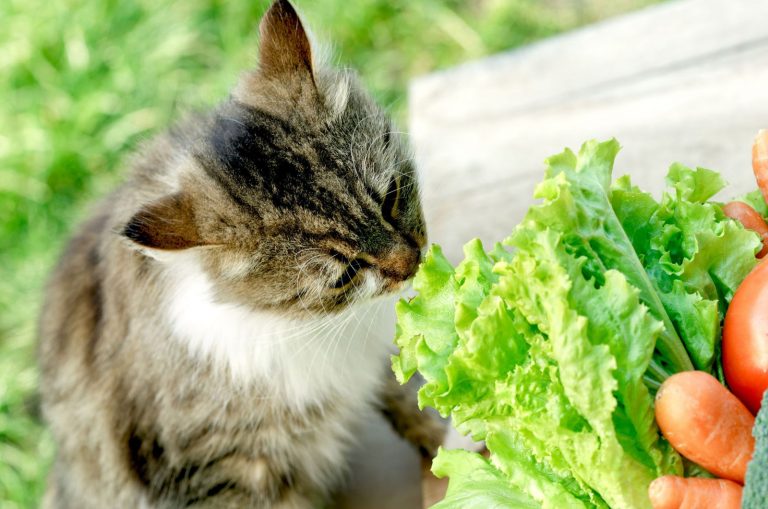Can Cats Eat Garlic? Does Your Cat Claw At Garlic Cloves?
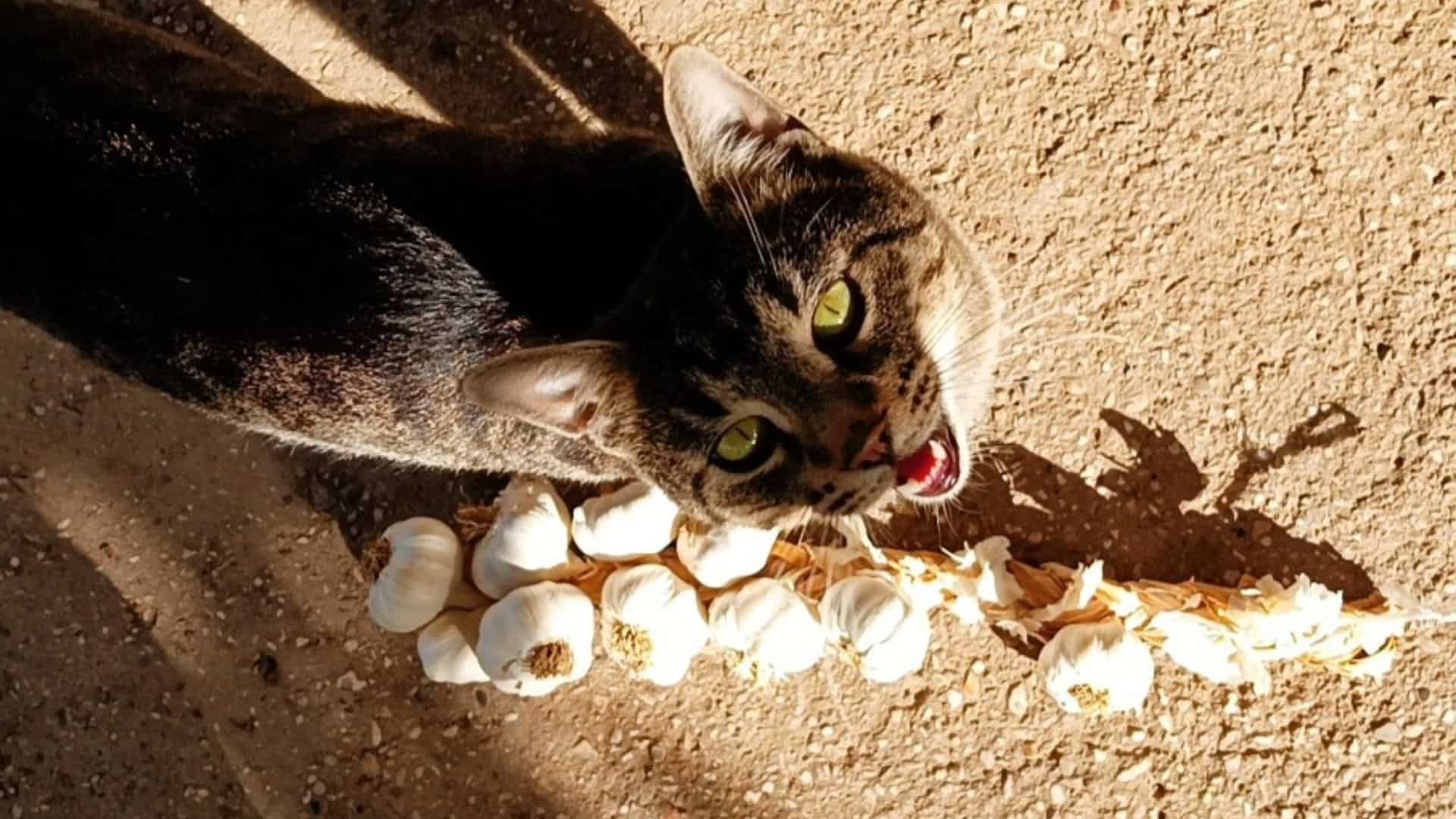
A lot of cat owners wonder the same thing, can cats eat garlic? The answer to that is simple – no.
Cats should never eat garlic. Not a single clove of garlic or any amount of garlic should be given to cats. Garlic is a member of the allium family, and its ingestion can even be life-threatening for your feline friend.
Why is that so? Continue reading and learn all about it in this brief article.
Can Cats Eat Garlic?
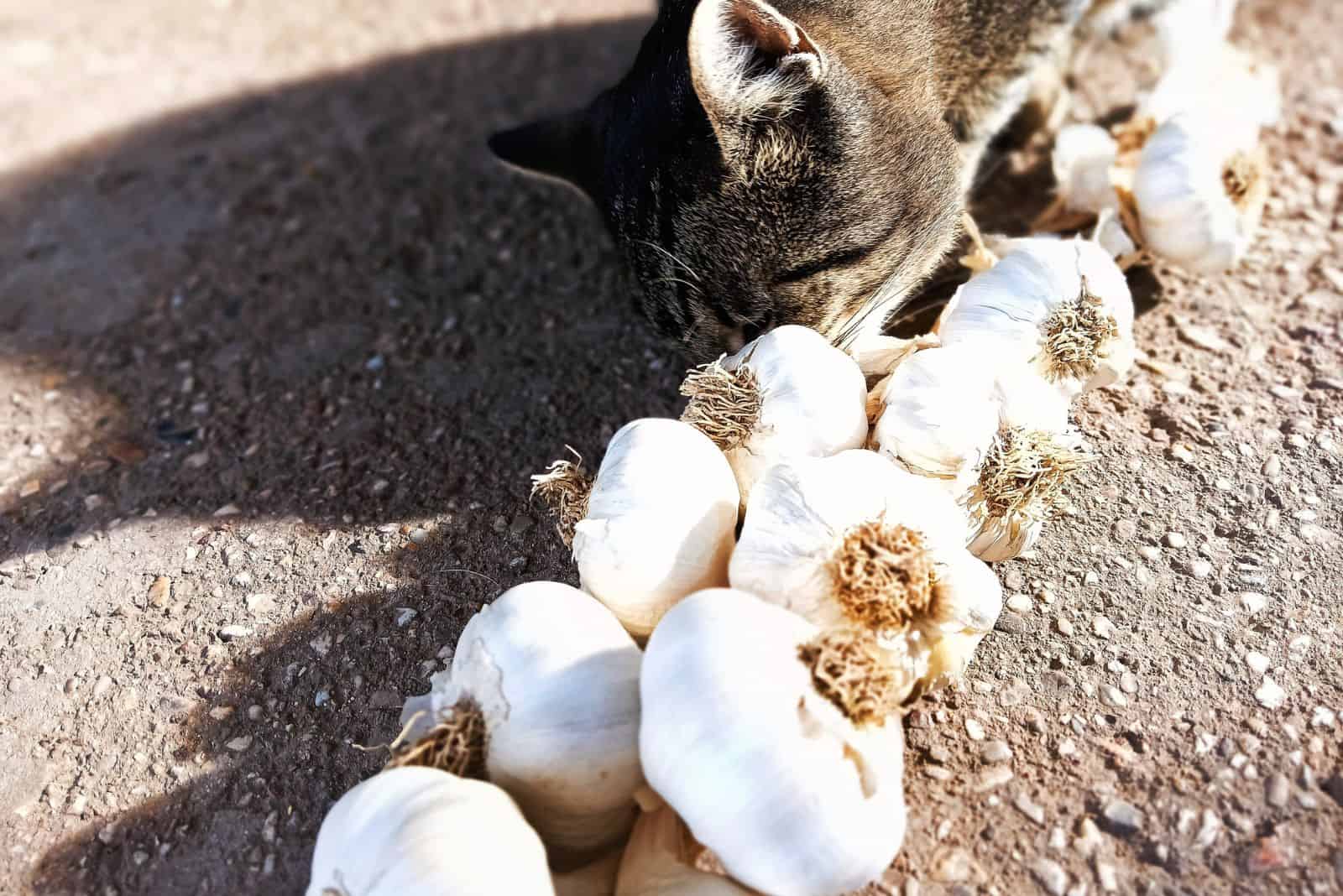
No. If your cat ingests some garlic, even a small amount of garlic, it will cause gastroenteritis (an upset stomach) and highly likely hemolytic anemia. It is a dangerous condition that can be fatal if not dealt with promptly.
Is It Safe Or Toxic?
Garlic belongs to the Allium Genus, a veggie family that includes scallions, onions, leeks, shallots, and chives. All these veggies can cause oxidative damage to your cat’s health.
These are all considered toxic to both dogs and cats, but garlic is the most toxic of them. Even though there are some benefits associated with garlic and your cat’s immune system, the toxicity is much more prominent!
If your cat eats garlic, it is at risk of garlic poisoning. Garlic poisoning can easily lead to hemolytic anemia, which is the body’s reaction when it attacks the cat’s red blood cells.
Luckily, you’re able to limit the damage and prevent the occurrence of hemolytic anemia if you act quickly. However, the longer you wait to go to the vet, the more damage garlic can do to your cat’s health.
What About Flea Treatment?
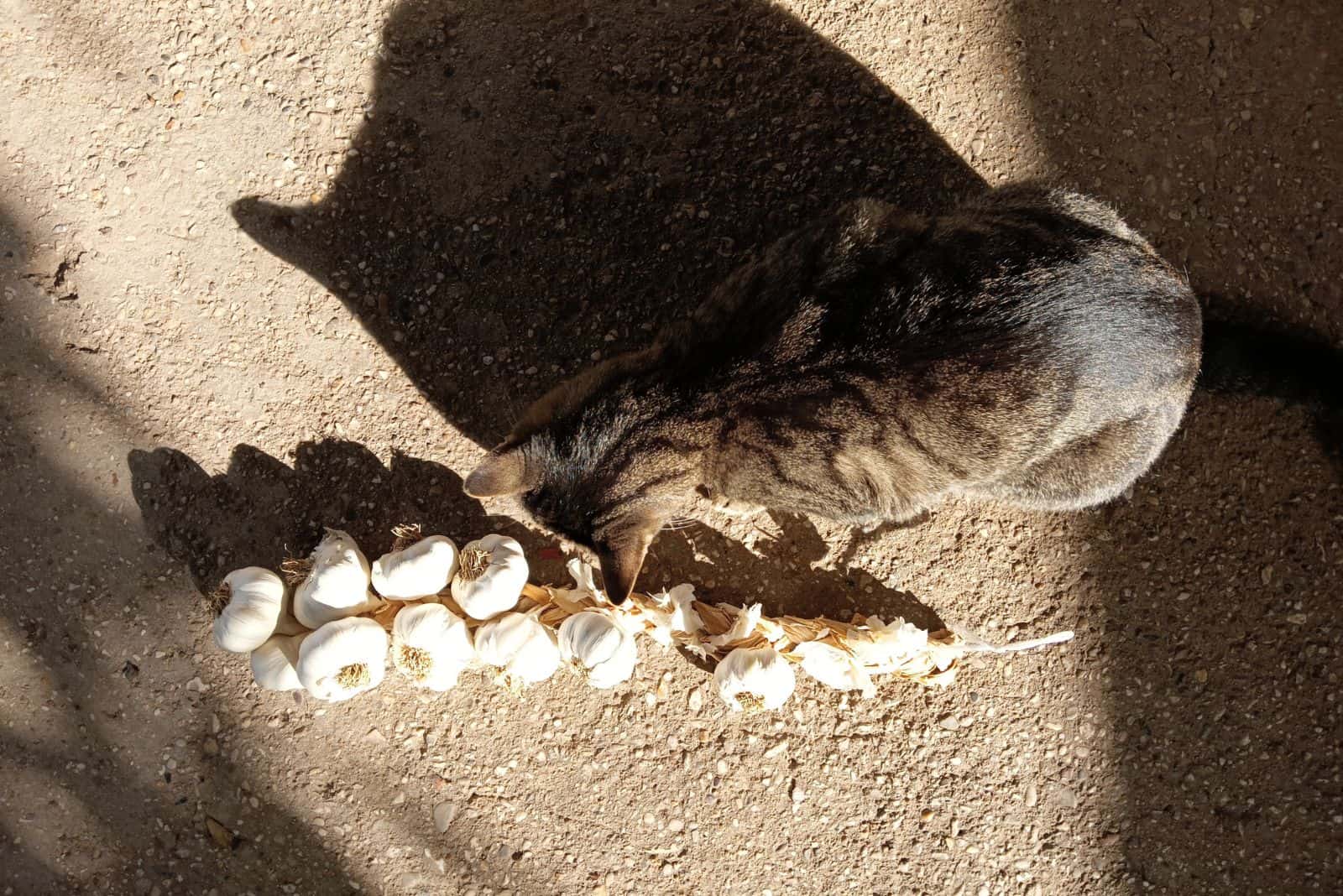
Some cat owners have heard that garlic can be helpful in treating fleas and parasites in cats. However, the risk is much higher, so it’s better to stick to other forms of flea treatment, which are also much more effective than garlic.
Garlic In Different Forms
You always need to check the label of any food you’re thinking of putting in your cat’s diet. Garlic supplements and seasoning can pop up anywhere.
It doesn’t matter whether the food in question contains garlic cloves, garlic powder, or it’s just seasoned with garlic; it’s still harmful to your cat. Garlic bread as well. Plain bread isn’t very nutritious for cats, but it’s not dangerous, either.
Garlic bread, however, is extremely dangerous for your cat. Most store-bought garlic breads usually contain only a small amount of garlic, but nevertheless, it’s still highly toxic for cats.
The amount of garlic your cat consumes is what determines the severity of the poisoning.
Your cat’s weight and size and susceptibility are also factors. It’s unlikely that a small bite of garlic bread would be fatal for cats, feeding it can still lead to anemia and even death.
Garlic Poisoning
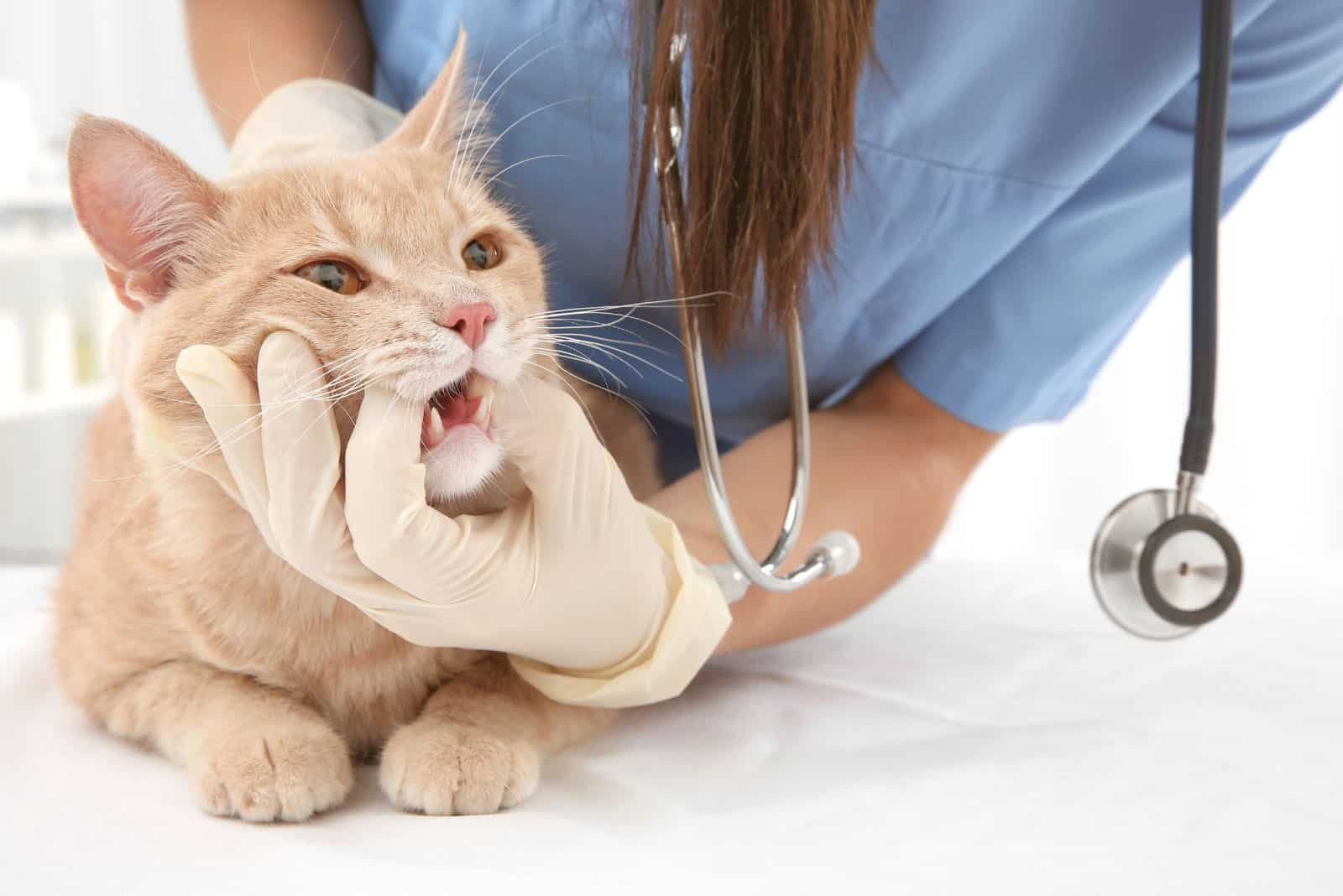
Garlic, in general, can be toxic and harmful to cats, especially when consumed in large quantities or over a long period of time. As I’ve already said, garlic ingestion can lead to hemolytic anemia and can even end your cat’s life.
If your cat eats garlic, you may notice signs like pale gums, or your cat might even vomit or have difficulty breathing. The condition can easily deteriorate and will get progressively worse the longer you wait to see a vet.
You need to take your cat to the vet as soon as you notice any symptoms or anything unusual in its behavior. This way, you’ll likely avoid potentially fatal situations.
Garlic is frequently used in seasonings in our favorite dishes, and some pet parents feed it to their kitties because they believe it has health benefits, such as preventing certain health conditions and heart diseases, or getting rid of fleas.
All in all, garlic is extremely toxic for cats, and it should never be included in your cat’s diet, let alone their every day diet plan.
Symptoms Of Garlic Poisoning
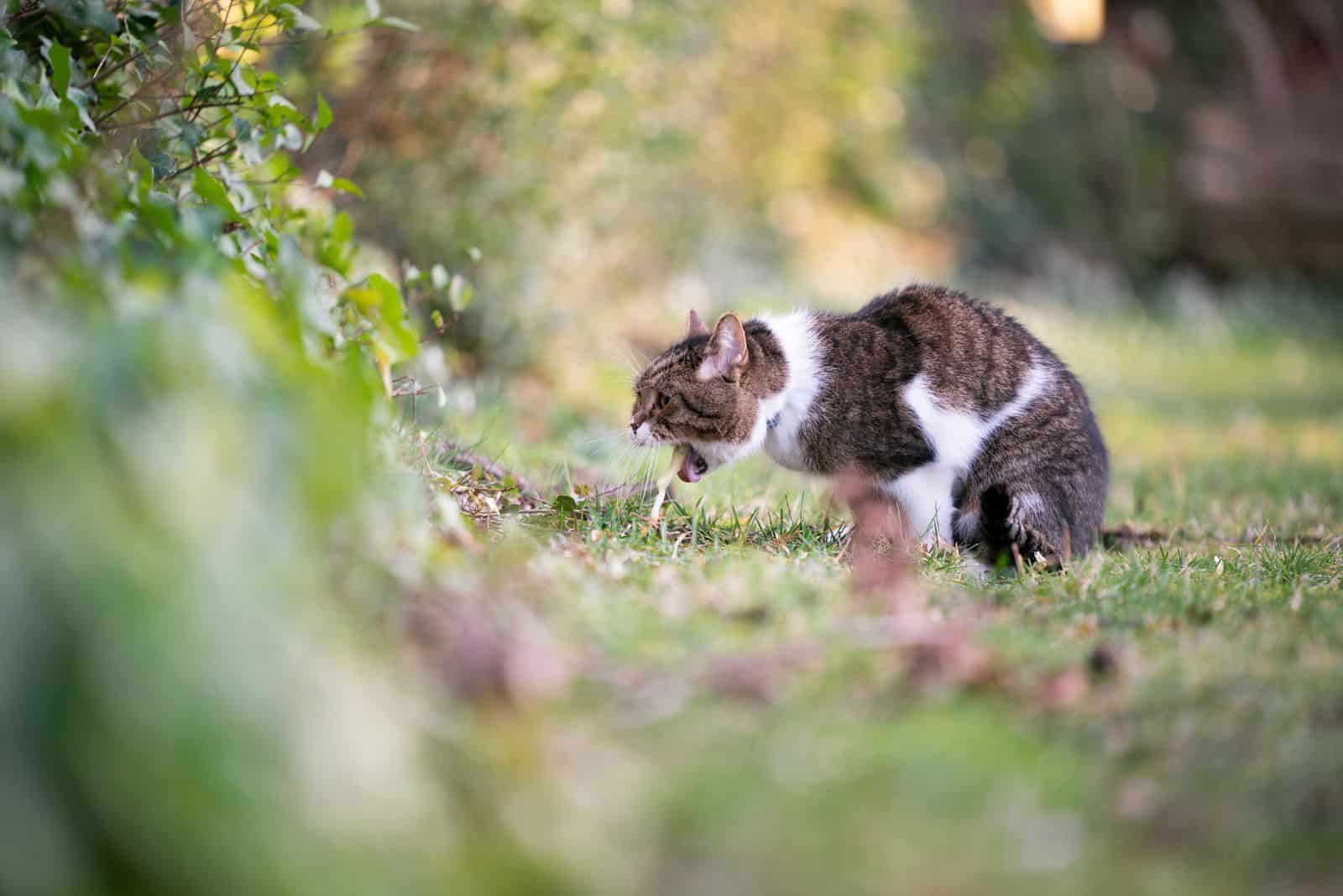
The symptoms of garlic poisoning in cats, in most cases, don’t appear immediately upon ingestion. The symptoms most often appear a few days after ingestion, which is why it’s often difficult for owners and veterinarians to diagnose the cat’s condition.
The following symptoms are the most common ones you might notice:
• Pale gums
• Faster heart rate
• Diarrhea
• Drooling
• Vomiting
• Increased respiratory rate
• Difficulty breathing
• Oral irritation
• Nausea
Diagnosis Of Poisoning
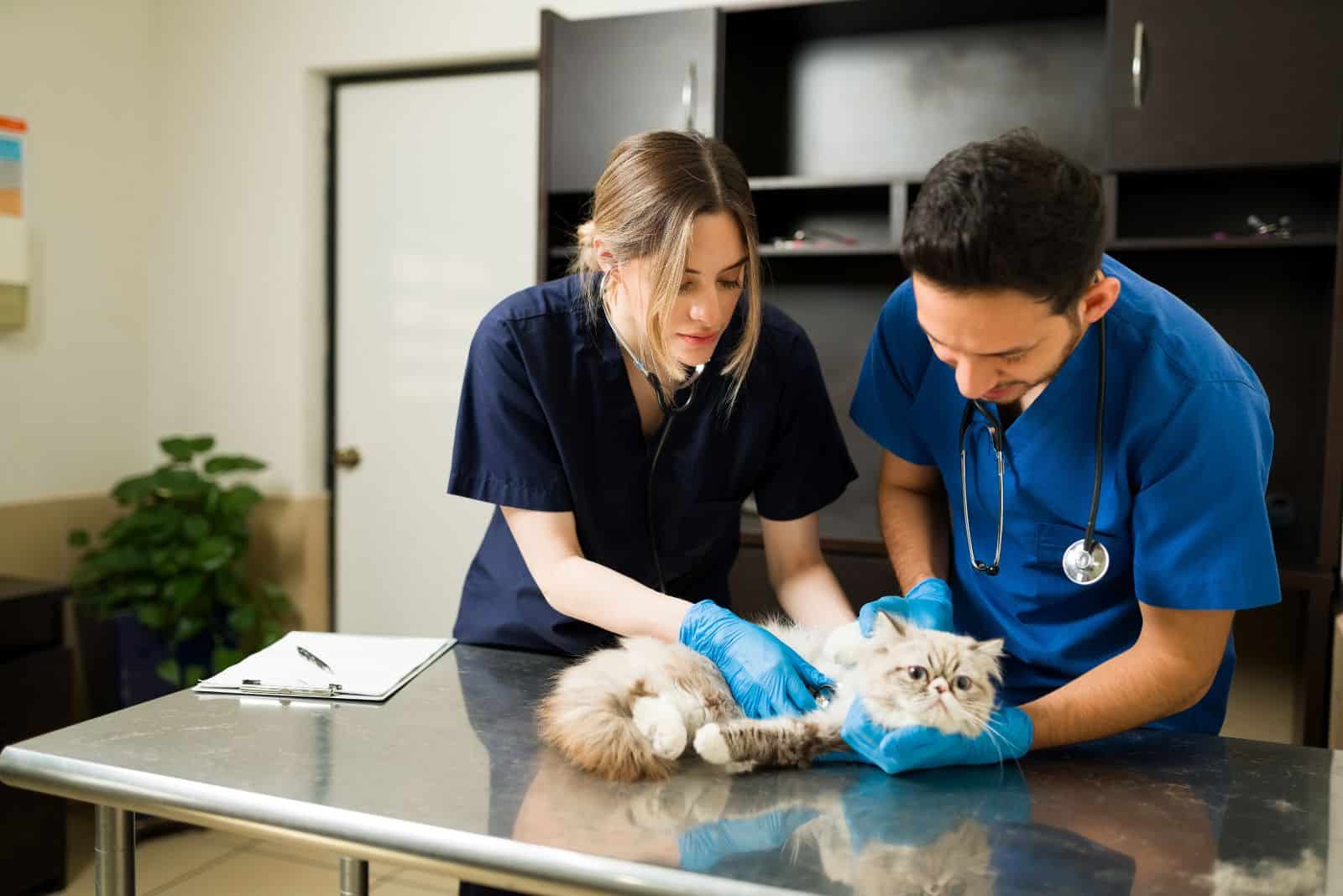
If you notice any of the symptoms I mentioned, you need to take your cat to the vet right away. Describe the symptoms you’ve noticed to your vet, including when they started, and explain any dietary changes you’ve made for your cat.
Your vet will begin the exam with a few tests, a complete blood count, a blood chemistry profile, and a urinalysis.
All this will assist your vet in determining whether your cat has lower levels of red blood cells and help your vet detect if there are any Heinz bodies, which appear in the case of hemolytic anemia.
However, the occurrence of hemolytic anemia can have different causes, so your vet might not be able to conclude that your cat has garlic poisoning only from Heinz bodies.
The information you provide will most likely be more helpful in establishing the diagnosis. This is why it’s critical to be as specific as you can when discussing your cat’s condition with the vet.
How To Treat The Poisoning
The treatment will differ based on when your cat ate the garlic. If it hasn’t been long since your cat ingested garlic, the vet needs to start inducing vomiting by administering a 3% hydrogen peroxide solution orally.
This will remove any undigested garlic from your cat’s stomach and keep your cat’s condition from worsening. A gastric lavage, or stomach rinse, may also be performed to ensure that all toxins have been cleaned out of the cat’s stomach.
The veterinarian might also include activated charcoal in the therapy. Toxins are absorbed by activated charcoal, preventing them from entering your cat’s bloodstream and causing further harm.
Your cat’s condition will need to be monitored at the vet clinic, so your vet can determine whether your cat requires oxygen therapy or IV fluids. It is quite common for cats to require IV fluids because of vomiting and diarrhea.
This is good for preventing dehydration. If the poisoning is due to garlic sprays or other skin products, the vet will thoroughly bathe and clean your cat to eliminate any residual toxins.
Although it’s not that common, your cat might also need a complete blood transfusion to stay alive, but only if the garlic poisoning is severe.
Care And Recovery
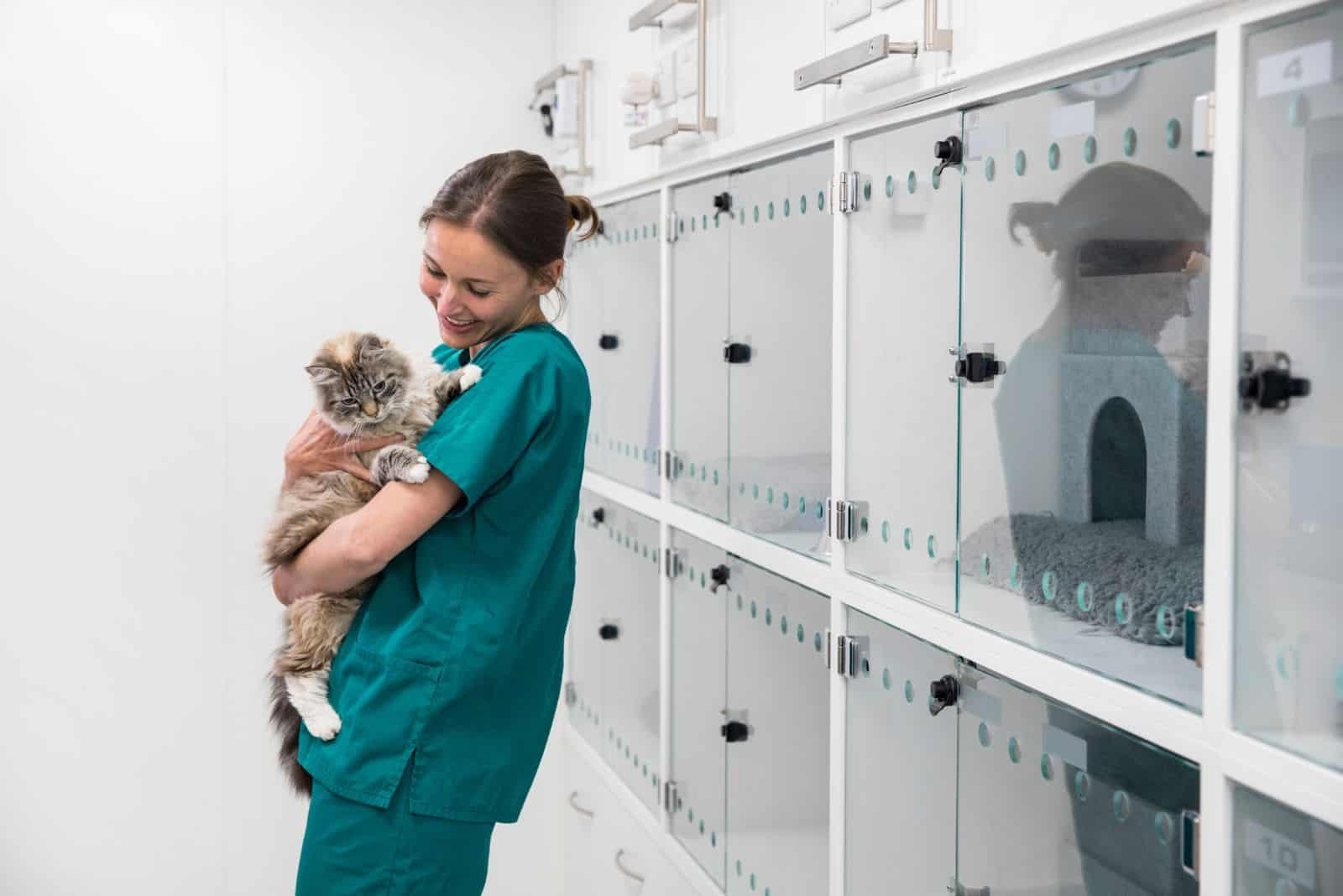
Recovery is successful in most cases, only in severe cases of garlic poisoning might there be complications. After treatment, the vet may keep your cat to confirm that its condition is stable before going back home.
Discuss at-home aftercare for your cat with the vet. First and foremost, any garlic in your cat’s diet should strictly be avoided, and only vet-approved cat foods should be used.
Check all of your products, including any alternative health remedies for fleas. If you use garlic in your own meals, keep it somewhere your cat cannot get to it.
Help In Prevention
What you can do to help in the prevention of garlic poisoning is keep the garlic (and all allium veggies) out of reach. You should also avoid sharing food that’s seasoned with garlic, or has garlic in it, with your cat.
Also, keep your kitchen or pantry, wherever you keep your garlic, closed when you’re not around. Cats are nosy, and your cat might get its paws on a clove of garlic without you noticing if left alone in the kitchen.
Final Words On Cats And Garlic
In conclusion, cats can’t be fed garlic, and if your cat happens to ingest some – in any form – it will probably suffer from garlic poisoning. Luckily, it can be treated, and the treatment is mostly very quick and effective if you act on time.
The recovery will depend on the level of garlic toxicity since some more severe cases will require longer treatment and, with it, longer after-care.
I hope you’ll be careful with garlic around cats and that you’ll act quickly if your cat accidentally ingests some garlic in the future.
Related Articles:
• Can Cats Taste Spicy Food? 4 Reasons Some Cats Love Spicy
• Can Cats Eat Gingerbread? Learn More About Safe Cat Treats
• Can Cats Eat Cucumbers Or Are They Too Afraid Of Them?
Like this post? Share or pin it for later!
